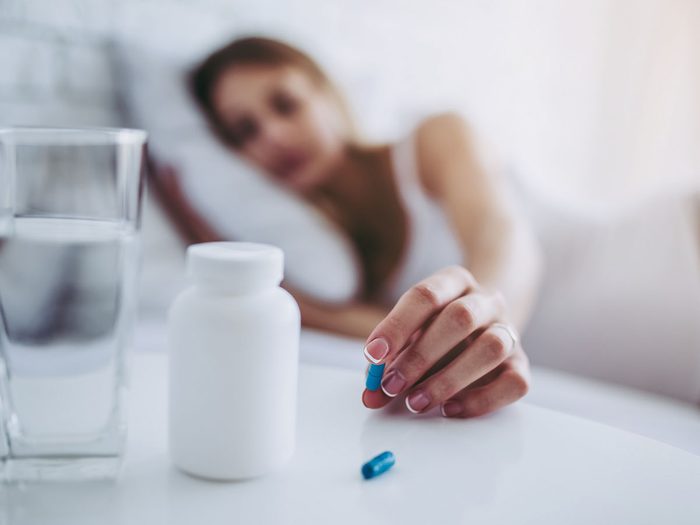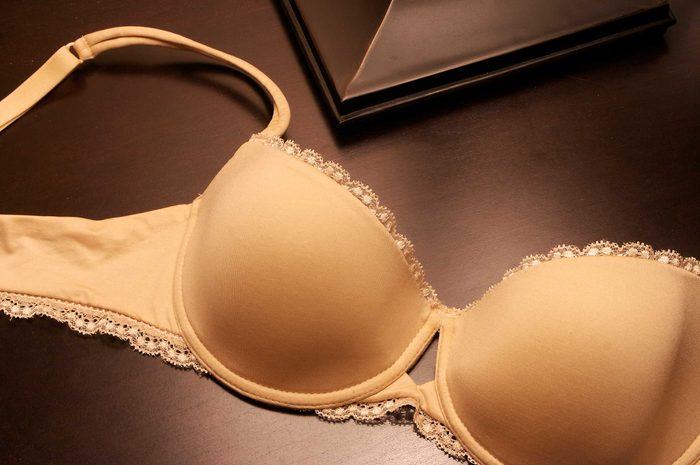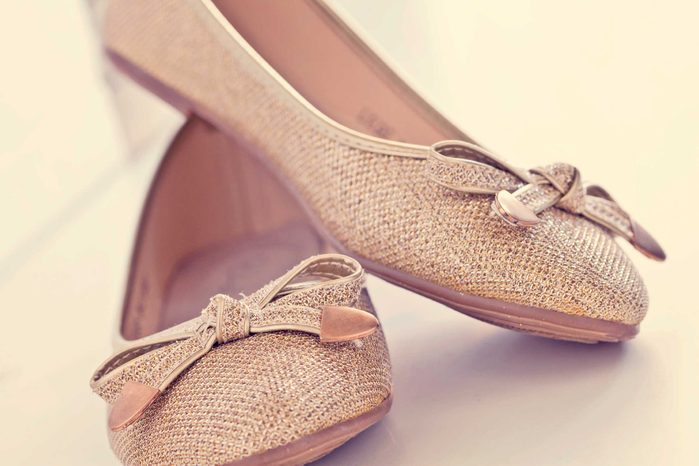
A new prescription
You take medicine to feel better. But as a side effect, some medications (such as morphine or fever-reducing drugs) make you sweat. And that often means more body odour.
Hundreds of medications, such as antihistamines, decongestants, and muscle relaxers, as well as those to treat nerve pain and anxiety, can cause dry mouth, one of the most common causes of bad breath, says the Mayo Clinic. Use a stronger, clinical-strength antiperspirant/deodorant, and swipe it on at night before you go to bed. This helps block odour-causing sweat before it ramps up in the morning. You can also talk to your doctor about switching meds or adjusting your dosage.
Suffer from chronic dry mouth? Find relief with these effective tips.

A spicy food addiction
Sulfur-containing gases are what causes body odour after you eat certain foods. Foods heavy in garlic, curry, or other spices release these gases when your body breaks them down, says Marie Jhin, MD, a dermatologist who practices in San Francisco and San Carlos, California, and author of Asian Beauty Secrets. These smelly gases are released through your pores, leaving you with body odour for a few hours post meal, she says. To avoid this kind of body odour, be smart about meal timing. “Don’t eat these foods before an important meeting or a date,” says Dr. Jhin. Already hit the Indian buffet for lunch? Don’t panic. Drink plenty of water (This happens to your body when you drink 8 full glasses of water a day.), take a shower if possible, and apply a deodorant-antiperspirant, says Dr. Jhin.

Sky-high stress levels
Sweating is a natural response to stress, but the smelliest sweat actually happens when you’re stressed. “Stress” sweat comes from apocrine glands. This sweat fluid is odourless—until it mixes with your skin’s bacteria, causing a pungent body odour. (Sweat from heat or exercise is made more of water and electrolytes, says Dr. Jhin). Proactively wear a clinical-strength, over-the-counter antiperspirant/deodorant so you’re covered when stress strikes. (Even better, leave a stick in your desk drawer). If you still suffer from stress sweat, your doctor can prescribe a prescription antiperspirant or recommend Botox (approved for underarm sweating). Also, keep up with your laundry. “Washing clothing regularly decreases the number of bacteria available to break down our sweat into odour-causing byproducts,” says dermatologist Lauren Ploch, MD, of the Georgia Dermatology & Skin Cancer Center in Augusta. Read on to find out which natural deodorants passed our sweat test.

A boozy night out
As your body breaks down alcohol and it goes through your bloodstream, some of it comes out of your breath and sweat. “The body treats alcohol as if it was toxic, and therefore tries to break it down and excrete it as quickly as possible,” according to Buddy T., the About.com expert on alcoholism. “Most alcohol is metabolized in the liver and is excreted from the body in urine. But if you drink more than the liver can process or if your liver is damaged, some is excreted via breath and sweat.” And that leads to foul body odour. “To avoid smelling like alcohol, try drinking at a slower pace, or alternating a glass of water or other non-alcoholic beverage between each alcoholic drink,” says Buddy T. Dr. Jhin also suggests putting on fresh clothing and taking a long soapy shower when you get home from the bar.
For a healthier drink option, try this Spiced Ginger Kombucha Cocktail. And learn more truths about alcohol and your health.

Forgetting to wash your bra
A bra’s fabric touches beneath your arms, across your back and between your breasts and chest, which are all areas prone to sweat. And bras are often made of fabrics that don’t wick away moisture. “The moisture can make bacteria and fungus overgrow,” says Dr. Jhin. That trapped sweat and moisture are what causes body odour — and rashes, too, she says. (Here are 3 steps to get to the bottom of your skin sensitivity.) Consider this an excuse to go shopping: Buy three to five of your favourite bras that you can rotate, says Kimmay Caldwell, a bra fitter with 11-plus years in the industry. “Don’t wear the same bra two days in a row,” says Caldwell. “Not only will this stretch out the elastic, but overwear also leads to more oils and odours.” Avoid synthetic fabrics (like spandex), which trap sweat as they rub against the skin, causing odours to linger. Opt for breathable fabrics like cotton, sheer mesh, or lightweight lace, suggests Caldwell.

Skipping socks
“Wearing closed shoes without socks [to absorb the moisture] means feet are essentially bathing in their own sweat and bacteria,” says Dr. Jhin. “That buildup can cause bad foot odour.” Before you put shoes on in the morning or at night, apply some antiperspirant to your feet, says Dr. Jhin. If you can, take your shoes off beneath your desk to give them some fresh air, which helps ward off bacteria growth. Once you’re home after a long day in shoes, put feet in a bacteria-killing bath of one part vinegar to two parts water, says Dr. Jhin. And don’t wear the same shoes two days in a row. Rotate pairs so they can air out a little. Next, learn 15 diseases doctors can actually detect through smell.
